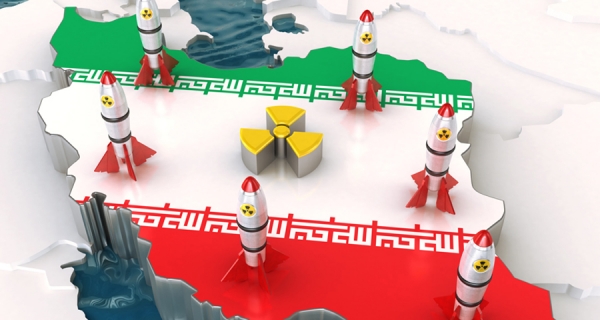The Ideological Background of Iranian-Arab Relations
Reality: In fact, other factors pertaining to economic ties and regional politics have also shaped these leanings in Iran’s foreign policy.
The belief that the links binding some Arab states and political groups to Iran are linked to religion is widely persistent in the Arab world and elsewhere today. The ideological and cultural ties between Iran and certain groups in Iraq and Lebanon have more specifically been attributed to the background of Shiism shared by their people. While these factors have much truth to them and should not be ignored, historical research into Iran-Arab relations shows that their origins extend further than the Islamic ideals introduced by the Iranian revolution of 1979.
It is generally assumed that Ayatollah Khomeini initiated the stance towards furthering Arab interests but it is interesting to find that this strategy was actually started in the later years of the Shah’s rule. In the early 1970s, Iran’s economy reached new heights of growth, and the revenue from oil production reached 1336 billion rials in 1974 (Parsi 497). With this expansive growth, Iran began exploring the possibility of becoming the region’s most influential power. Mohammed Reza Shah Pahlavi even aspired to famously become the ‘policeman of the Gulf’.
In his essay ‘Israel and the Origins of Iran’s Arab Option’, Trita Parsi makes a strong case for the suggestion that before the Islamic Revolution, it was actually the Shah’s ambition to stabilize Iran’s regional role that started the friendly approach to the Arab neighbors. According to him, the enhanced status of Iran’s economic power made it less weary of the spread of Arab nationalism and thus no longer in need of fostering positive relations with Israel to deter the Arabs. This was of course coupled with the alleviation of the threat of Arab nationalism after Sadat came to power in Egypt.
The Shah had realized that gaining the approval of Arab states would mean severing relations with Israel. He pronounced this clearly when he voted in favor of UN resolution 3379 condemning Zionism as racism (Parsi 503) and by ending an Israeli-Iranian operation in Iraqi Kurdistan through the Algiers Agreement of 1975 without prior notice (Parsi 505). Of this new agenda, the Shah explained the following to Muhammad Hassanein Haykal in 1975: “now the situation has changed... I think occasionally of a new equilibrium in the region... Perhaps [it] can be integrated into an Islamic framework” (Parsi 507).
There is no doubt that the policies of the Shah differ immensely from those of the religious scholars of the Islamic Republic. But the misconceptions pertaining to Iran-Arab relations should be noted: the biggest changes to Iran’s policy towards Arab states were in the 1970s and not in the years following the establishment of the Islamic Republic.
Parsi, Trita. “Israel and the Origins of Iran’s Arab Option: Dissection of a Strategy Misunderstood.” Middle East Journal, 60.3 (2006): 493-512.








Leave A Comment